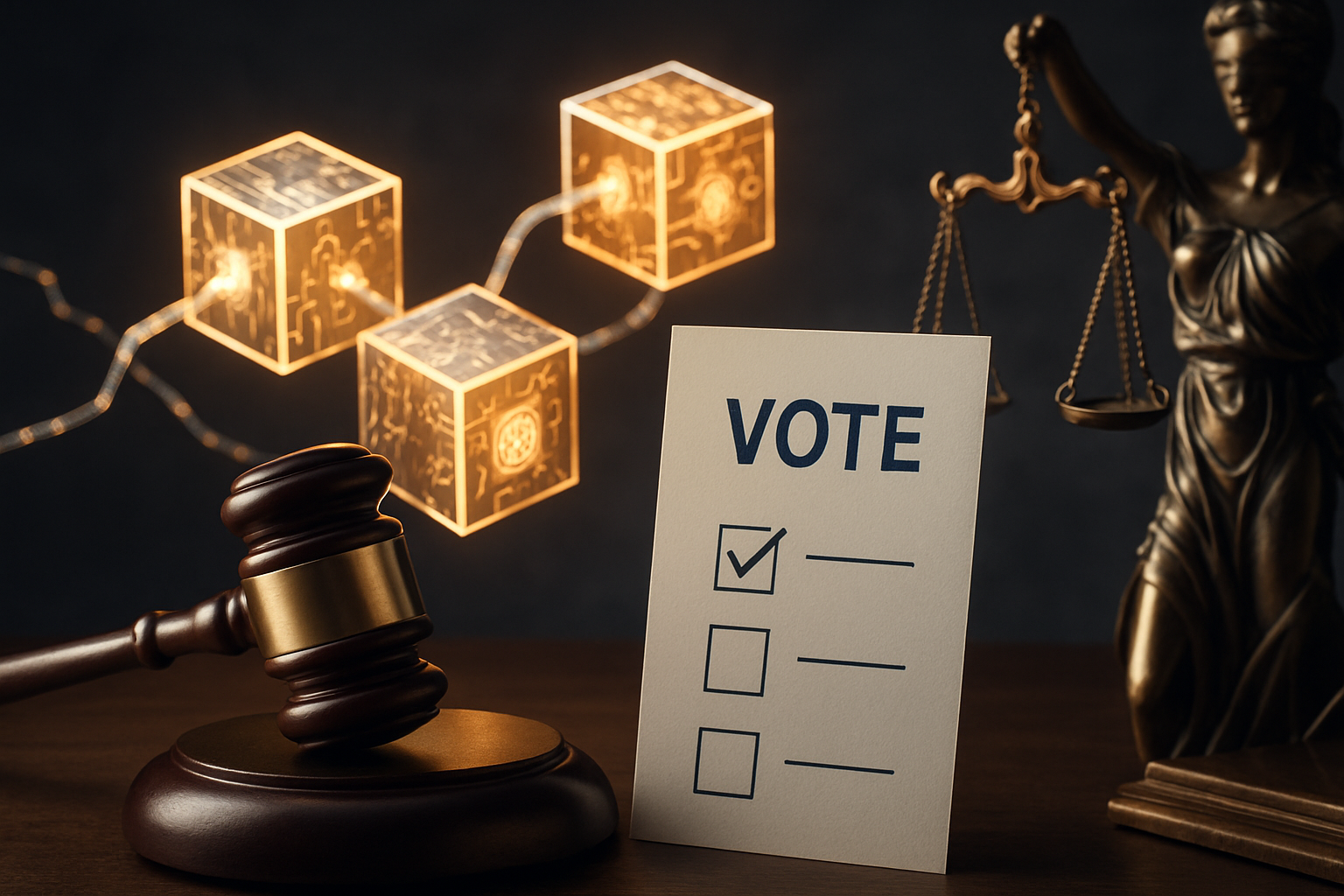Legal Implications of Emerging Blockchain-Based Voting Systems
Introduction: As technology continues to reshape our world, its influence extends to the very foundations of democracy. Blockchain-based voting systems are emerging as a potential solution to longstanding electoral challenges, promising increased security, transparency, and accessibility. However, this innovative approach raises complex legal questions that demand careful consideration.

Legal Framework Challenges
The implementation of blockchain voting systems presents significant challenges to existing legal frameworks. Most electoral laws were written with traditional paper-based or electronic voting systems in mind, leaving substantial gaps when it comes to blockchain technology. Lawmakers and election officials must grapple with questions of how to legally define and regulate these new systems. This includes addressing issues of voter identification, ballot secrecy, and the legal status of blockchain-recorded votes.
Voter Privacy and Data Protection Concerns
One of the most pressing legal issues surrounding blockchain voting is the tension between transparency and voter privacy. While blockchain’s immutable nature provides a clear audit trail, it also raises concerns about the long-term storage of voting data. Legal experts are debating how to reconcile blockchain’s permanence with data protection laws, such as the European Union’s General Data Protection Regulation (GDPR), which includes the right to be forgotten.
Authentication and Access Rights
Ensuring proper voter authentication while maintaining accessibility is another legal hurdle. Blockchain voting systems typically require some form of digital identity verification, which must be robust enough to prevent fraud yet inclusive enough to avoid disenfranchising eligible voters. Legal frameworks need to be developed to govern the creation, management, and protection of these digital identities, as well as to define the rights of access to the voting blockchain.
Regulatory Oversight and System Auditing
The decentralized nature of blockchain technology poses challenges for regulatory oversight. Traditional electoral commissions may lack the technical expertise to effectively monitor and audit blockchain-based systems. New legal structures may be necessary to establish specialized regulatory bodies or to define the roles of existing agencies in overseeing these systems. Additionally, laws must be crafted to ensure that blockchain voting platforms are subject to rigorous security audits and certification processes.
Legal Status of Smart Contracts in Voting
Many blockchain voting systems utilize smart contracts – self-executing programs that automatically implement the rules and procedures of an election. The legal status of these smart contracts in the context of voting remains unclear. Questions arise about their enforceability, the potential for bugs or errors, and who bears legal responsibility if something goes wrong. Legislators must work to define the legal standing of smart contracts in electoral law and establish mechanisms for dispute resolution.
International Law and Cross-Border Voting
Blockchain’s borderless nature introduces complex questions in international law, particularly for elections involving expatriate voters or multinational organizations. Legal frameworks must be developed to address issues of jurisdiction, data sovereignty, and the recognition of blockchain-based votes across different legal systems. This may require new international agreements or the adaptation of existing treaties to account for this technological shift in voting methods.
Accessibility and Equal Protection Under the Law
As with any voting system, blockchain-based platforms must comply with legal requirements for accessibility and equal protection. This includes ensuring that the technology does not discriminate against or exclude certain groups of voters, such as those with disabilities or limited technological access. Legal standards must be established to guarantee that blockchain voting systems meet or exceed the accessibility requirements of traditional voting methods.
The advent of blockchain-based voting systems represents a significant leap forward in electoral technology, but it also opens a Pandora’s box of legal challenges. As these systems move from pilot projects to wider implementation, it is crucial that legal frameworks evolve to address the unique characteristics of blockchain technology. Balancing the potential benefits of increased security and transparency with the fundamental principles of democratic elections will require careful legal craftsmanship and ongoing dialogue between technologists, lawmakers, and election officials. The legal landscape surrounding blockchain voting is still in its infancy, and the decisions made in the coming years will play a crucial role in shaping the future of democratic processes worldwide.






